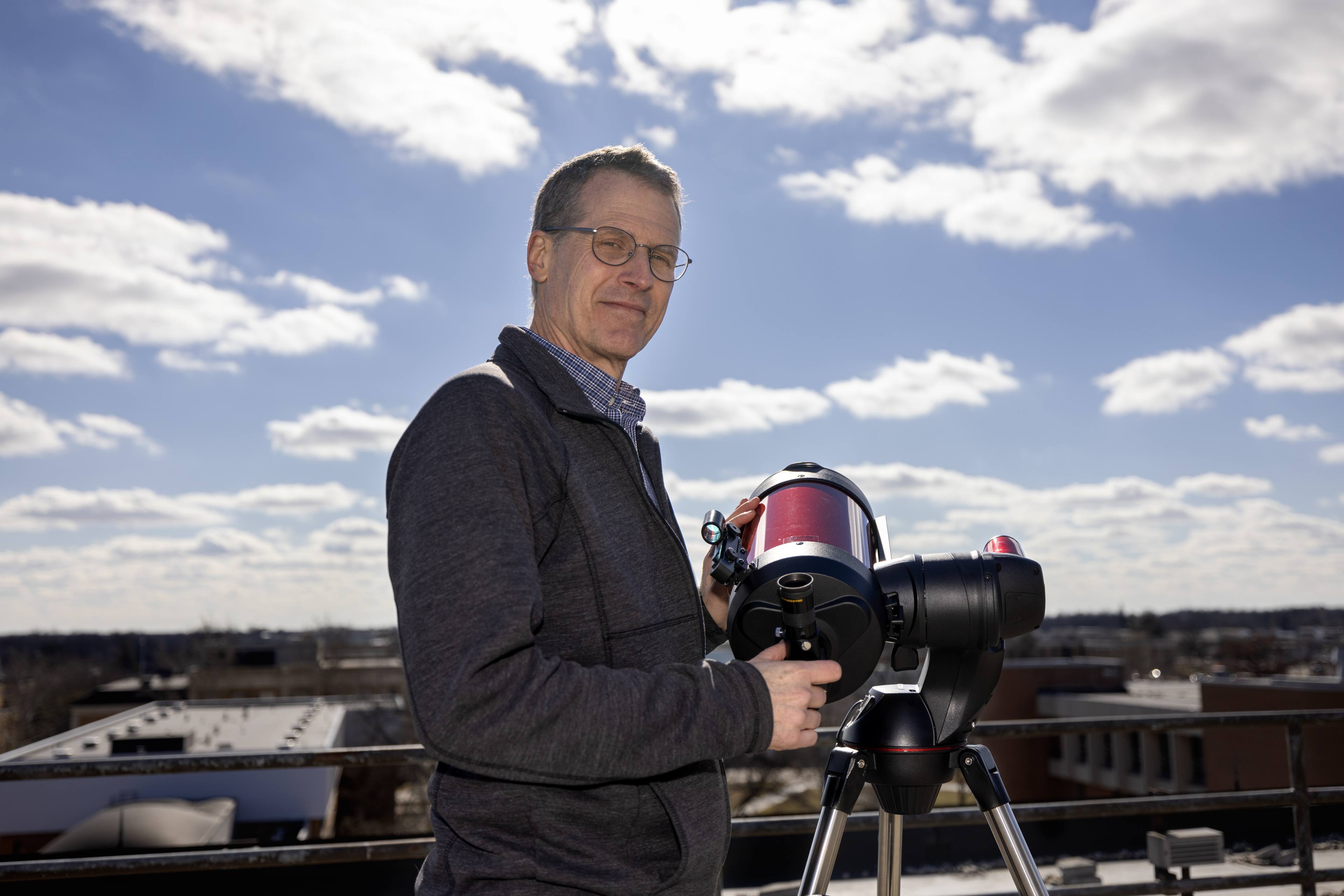
Meet the BGSU eclipse experts: Dr. Andrew Layden
Estimated Reading Time:
Layden, who has been at the University since 1998, chairs the BGSU Physics and Astronomy Department
By Nick Piotrowicz
As an undergraduate student, Dr. Andrew Layden sat in an astronomy class and couldn’t help but feel the enthusiasm one of his professors showed for the topic.
The professor’s exuberance was contagious, and Layden — a science-inclined student who had gravitated toward physics in high school — felt inspired to pursue astronomy as well.
“I had a really good professor who loved the topic, and he showed and shared his love with students,” he said. “When I looked around after starting in physics and found astronomy, that really clicked with me. I recognized that it was a difficult path and I may not get from A to B, but I knew I wanted to give it a try.”
A lifetime later, Layden is on the other side of the discussion as a Bowling Green State University professor who brings his love of astronomy to the classroom.
Layden, who has been at the University since 1998, is now the chair of the BGSU Physics and Astronomy Department.
Whether teaching students who are taking an introductory astronomy course as an elective or a class of graduate-level physics students, Layden said being excited as a professor goes a long way toward helping students become interested and stay engaged.
“I try to let my enthusiasm show,” Layden said. “I recognize that not everybody wants to see the full picture, so I try to meet them where they are with their needs and their level of interest. I try to get them at least a little bit hooked.”
The BGSU Physics and Astronomy Department is helping lead the effort for the April 8 total solar eclipse, during which BGSU will welcome the learning and greater community for a watch party that includes telescope viewing, activities, scientific demonstrations, games and more.
What Creates a Total Solar Eclipse?
With Bowling Green in the path of totality and thousands of visitors expected across northwestern Ohio, the wonders of astronomy will be on full display for the general public as the sun briefly disappears behind the moon.
One of the great parts about teaching astronomy, Layden said, is that anyone can develop an interest, even at a casual or amateur level.
“With the general public, I’m not out there to make a whole bunch of astronomers — the world can’t handle that,” he joked. “But I can get people interested. When they see an article or something comes across their news feed, they might follow up on the topic.
“I think astronomy is great that way: it has such a strong amateur component. You don’t need to be a professional or make it your career to be interested. I think a lot of our students who take our astronomy minor do so because they want to advance their interest as an amateur first.”
An interest in astronomy — amateur or professional — often starts with a spark.
As an educator, seeing someone develop a new interest is one of the most rewarding parts, Layden said.
“Something I’ve always enjoyed is sharing my interest and sharing my love of the field and my enthusiasm with other people, then seeing them engage with the ideas,” Layden said. “You can see that light come on where they get excited and enthusiastic too.”

Related Stories
Media Contact | Michael Bratton | mbratto@bgsu.edu | 419-372-6349
Updated: 04/12/2024 11:54AM




